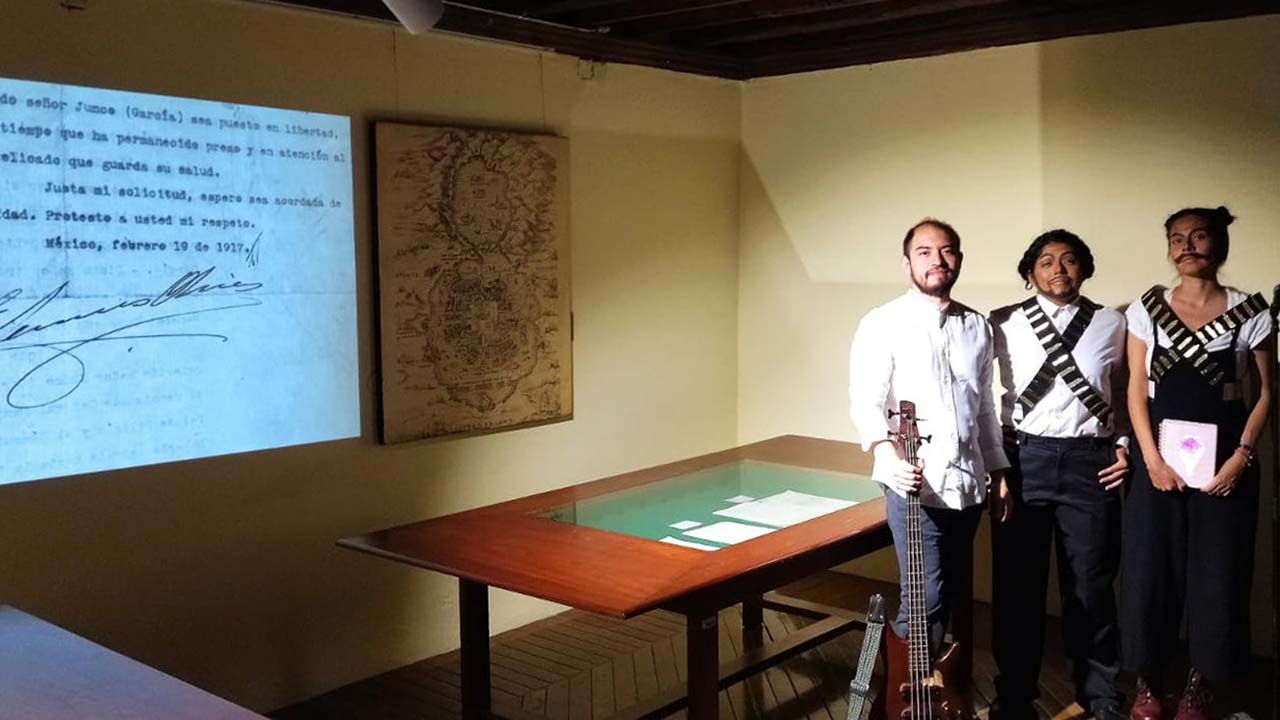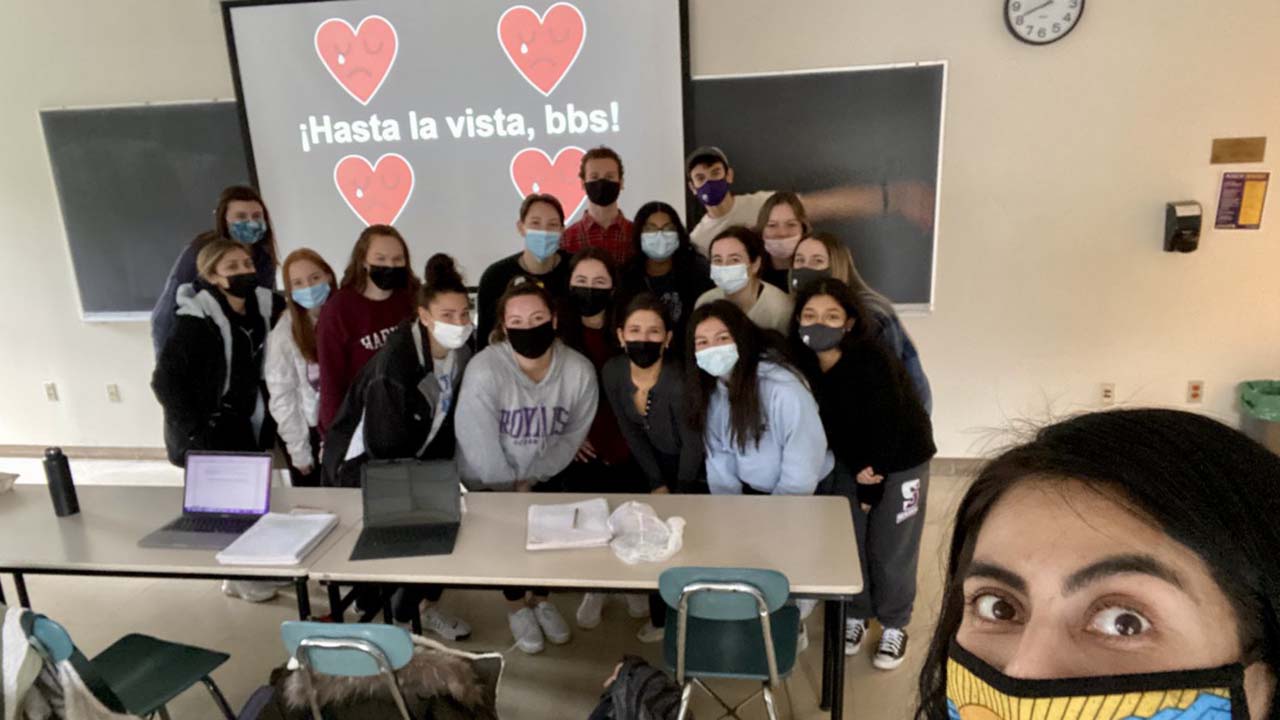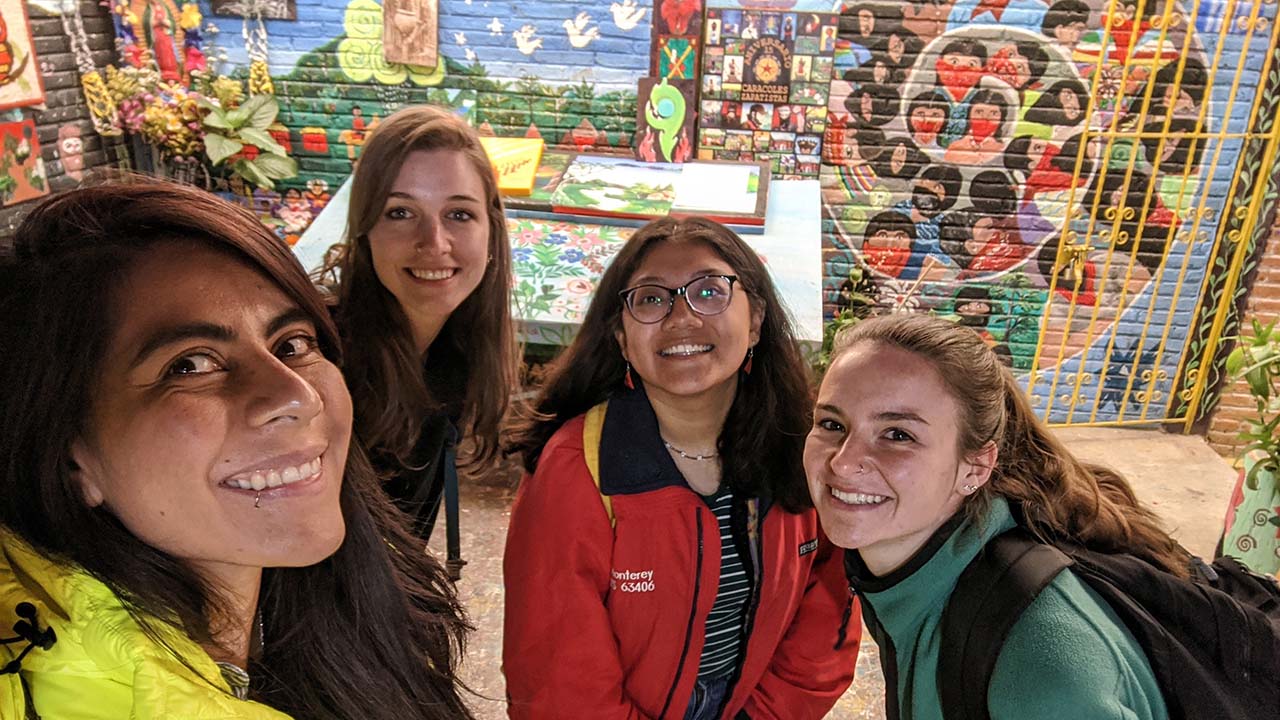Faculty Profile: A Conversation With Dr. Roxana Curiel

By: Claire Sunday, '23, student correspondent
An experience as teaching assistant led Roxana Curiel, Ph.D. to a profession to which she has dedicated more than a decade, including three years at The University of Scranton. Originally from Mexico City, she graduated from the Universidad Nacional Autónoma de México and received a doctorate in Peninsular and Mexican Literature and Cultures from the University of California, Riverside. During her second year in that program, her scholarship required a teaching assistantship.
The assistant professor in the University's department of World Languages and Cultures described the moment when she entered the classroom, prepared to be a teaching assistant, but was informed she would be teaching the class solo.
“It felt like someone literally just threw me to the lion’s den,” Dr. Curiel said. “When I started making connections with my research and the things I was teaching…that’s when I realized…this is what I am supposed to do.”
Today, she designs courses reflective of those that she wishes would have been part of her formal education. The curriculum also mirrors input received from her students. “We are doing this together,” Dr. Curiel said, explaining her teaching methods.
She again brought her student to the forefront when asked about her proudest moment as an educator: “It was the moment that I realized I was making a difference with my students.”
Dr. Curiel believes in changing one mind at a time and described education as a powerful means through which that difference can be made.
How Dr. Roxana Curiel educates and engages beyond the classroom
In spring 2022, Dr. Curiel completed a paper for the Faculty Success Program of the National Center for Faculty Development and Diversity (NCFDD). Her work, "De Roma a Juchitán: Intimacies and Colonial Gaze in Alfonso Cuarón's Roma and Graciela Iturbide's Photography," will be submitted to the Journal of Latin American Cultural Studies.
She also wrote a critique piece with her SPAN 315 “Migrations Across the Americas” students. They went to see the play "A Good Farmer" offered by the Academic Theatre Program/University Players and felt compelled to speak about it. Their piece unpacked the play's shortcomings and promoted an informed understanding of citizenship and the criminalization of Latinx migrants in the U.S.
Last summer, Dr. Curiel was awarded The University of Scranton Faculty Development Grant for the project “De muxe a muxe: Meuxeidad and the Third Gender in Zapotec Culture.” She spent the summer performing an ethnography of two muxe artists, Elvis Guerra and Luka Avedaño, which is part of her book manuscript, "Machorras: Embodying Identity Against Mexicanidad." Dr. Curiel’s current research supports the book, which questions Mexican identity and the label of Latinidad, in general.
She also created “Robles,” a drag performance piece with fellow dragtivist Nancy Cázares and musician Gabriel Tepichín. They were invited to perform it at the Archivo de la Ciudad de México as part of the talk series, “Disidencia, resistencia y movilización. La diversidad sexual en la Ciudad de México a través de sus archivos.” In the performance, they told the story of Colonel Amelio Robles and their transition during the Mexican Revolution (1910), along with current stories of violencia machista against trans women in Latin America. The piece's success has led to several invitations to perform at festivals and LGBTQIA+ events.
Said Dr. Curiel of her research, “If... not tied to activism, it loses meaning.”
In fall 2022, Dr. Curiel was invited to write a chapter on queer theory by scholars from Harvard University and the Universidad Autónoma de México, collaborating in an edited book, "Teoría Queer en México: Disidencias, Diversidades y Diferencias, under contract with Editorial Signos." Latinx students also invited her to be a faculty advisor in creating an ALPFA (Association of Latino Professionals for America) chapter at the University of Scranton.
During the celebration and commemoration of Hispanic/Latinx Heritage Month, Dr. Curiel took part in the panel discussion “Building DEI Partnerships for Students Leaning Inside and Outside the Classroom” at The University of Scranton Diversity Equity and Inclusion, or DEI, Faculty Workshop, "Creating a Welcoming and Inclusive Classroom." She also participated in a panel conversation organized by the Multicultural Center on the topic of Latino/x/e communities navigating labels, and their identity.
Before joining The University of Scranton faculty, Dr. Curiel worked at Pepperdine University, and Williams College where she was an Andrew W. Mellon Postdoctoral Fellow. 






